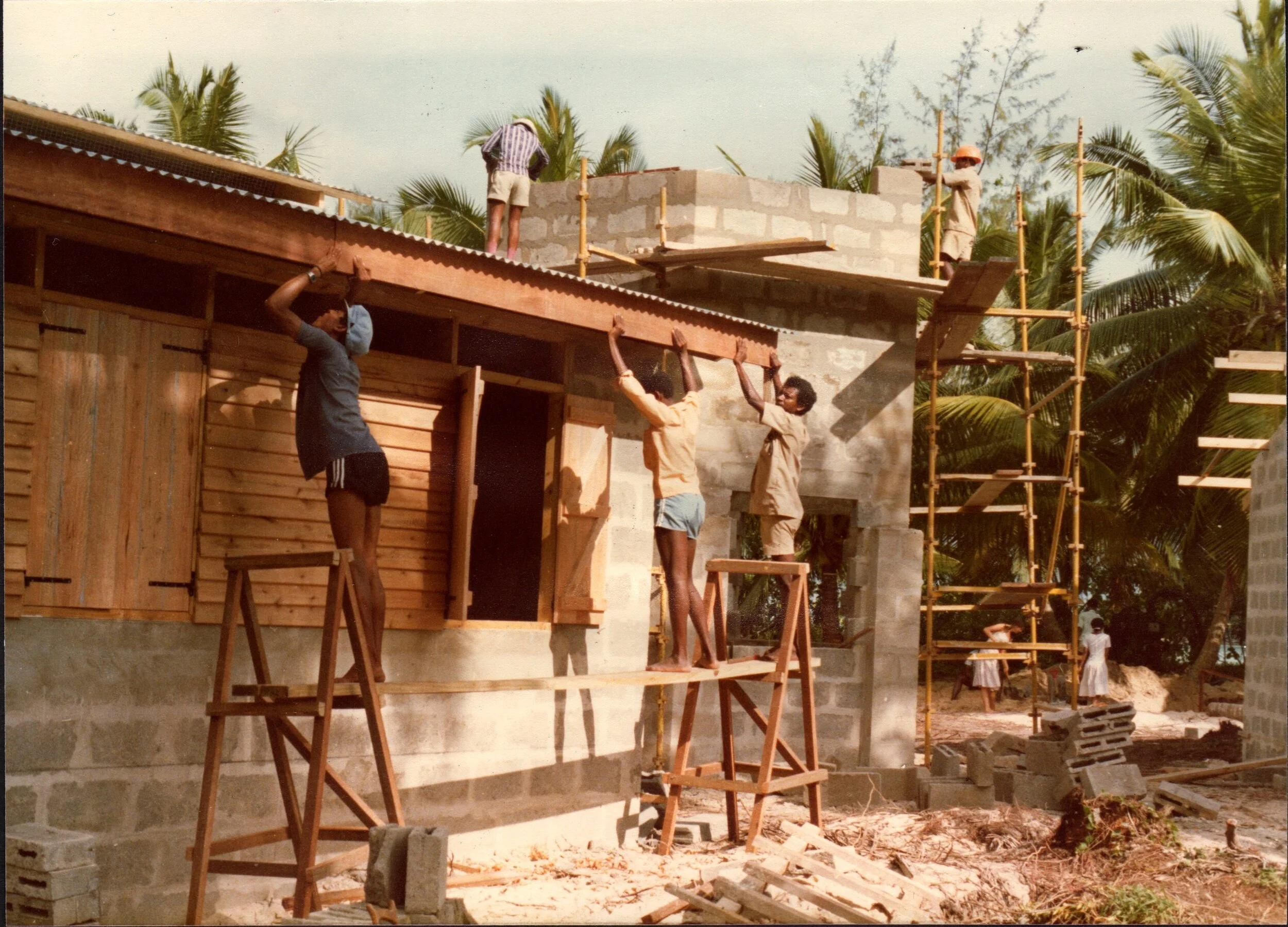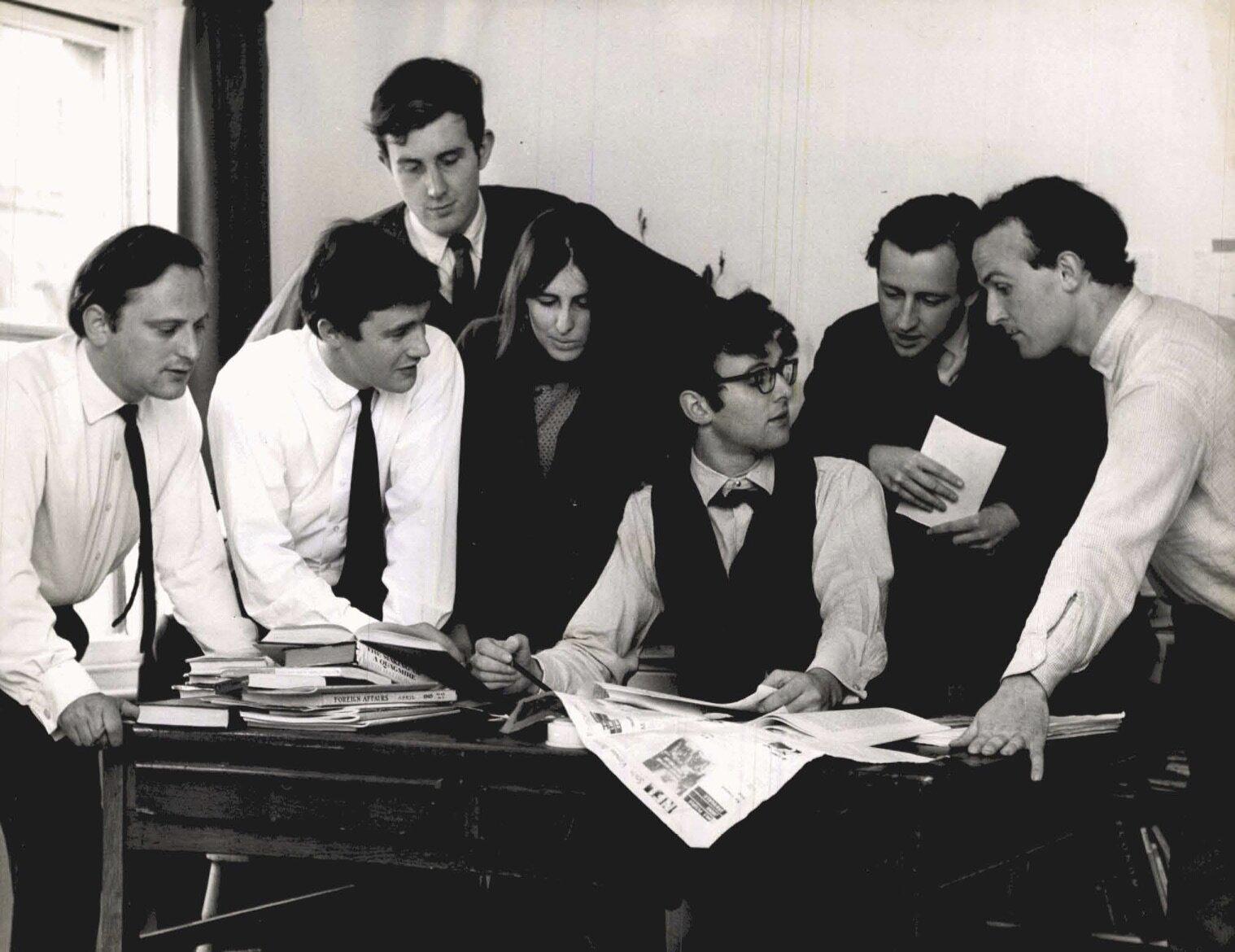International Development
Flexible Specialisation and International Development, IDS, 1972-1993
From 1972 to 1993 Robin worked at the Institute for Development Studies (IDS) at Sussex University. He advised governments and civil associations including in Jamaica, Ethiopia, Honduras and Cyprus. During this period, Murray’s academic work focused on industrial strategy, trade policy, Marxist theory, flexible specialisation, and international corporate taxation.
MPhil Programme, IDS, 1982. Co- directors Manfred Bienefeld and Hubert Schmitz (top row).
Multinationals, Marxist Economics & the BLPG, IDS
Manfred Bienefeld shares his memories of Robin, first while teaching at the IDS, then of participating in the Brighton Labour Process Group, and then, years later, at the University of Ottawa while working on community development. Bienefeld reflects on Robin’s views that international corporate capitalism was capturing and narrowing the power of nation states, while continuing to turn the screws on labour, both at home and abroad. In this context, Robin sought to understand how changes in technology, in industrial organisation, in global regulations, in forms of ownership and in the relationship between capitalist firms and their surrounding communities would - or could - affect the balance of power between capital and labour.
Robin with colleagues visiting Shakhovskoy, Russia
Russia and the Baltic States, IDS, 1992-1993
In the early 1990s, after the fall of the Soviet Union, Robin was involved in various projects examining the needs of small and medium sized firms in Russia and the Baltic States. The first project looked at the high tech video and tv industry while the second report studied the needs of small firms in the dairy and meat processing industries. These studies were undertaken at a unique moment in history.
The National Youth Service, Seychelles, IDS, 1980-1982
In 1977, a socialist government under the aegis of France-Albert René took power in the Seychelles. One of his key projects was the establishment of a new education system, the National Youth Service (NYS). The idea behind the NYS was that it was young people who had to spearhead the transformation of society. In The Seed of a New Society (July 1980), Robin Murray and Olivier Le Brun set out proposals for the National Youth Service, creating a blueprint and setting out the shape and form of the new youth villages which were established in 1981.
The Seminar on Socialist Development Strategies, IDS, 1979
Influenced by his work with the Brighton Labour Process Group and in Eritrea and Ethiopia, Robin held a 6 week study seminar on Socialist Development Strategies at IDS in 1979. This seminar featured a socialist version of a five-a-side football match, the principle of which was that when one team scored a goal, they had to surrender a selected member of their team to the other side.
Ethiopia and Eritrea, IDS, 1972-1993
From the 1970s to the mid 1990s, Robin undertook numerous research and advisory projects in Ethiopia and Eritrea. The former was the first country in which he carried out forensic fieldwork and his papers on HVA, the Dutch multinational sugar firm, were highly influential and controversial at the time of publication. His work on Ethiopia and Eritrea are also striking for the critical role of the case study - one of his favoured working methods.
Read-in on Vietnam, 1965
Inspired by the Teach-in movement which began in the USA, Robin Murray and an editorial team of ten worked together to produce a ‘Read-in' on Vietnam in the mid 1960s. The publication was a form of protest against the US military invasion of Vietnam and aimed to counter the official narrative which had been dominating public debate in the UK and US. The idea was to present as much objective information and analysis as possible to enable readers to form their own judgement about the American/Vietnam War.







